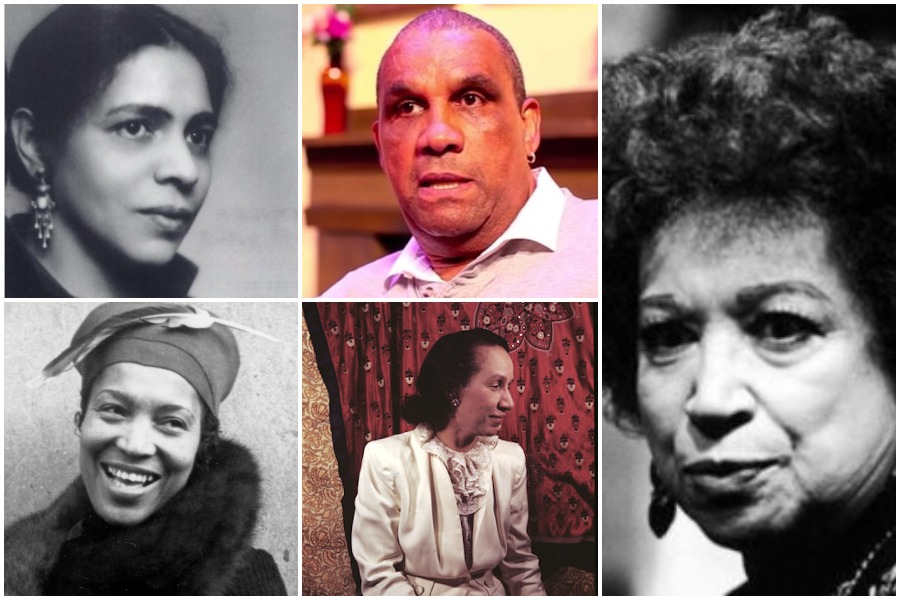NEW YORK CITY: Roundabout Theatre Company, the nation’s largest nonprofit theatre, with a mission largely if not exclusively centered on producing revivals, has announced a new annual program aimed at redressing one area they’ve mostly overlooked: the canon of work by Black writers and other people of color. Titled “The Refocus Project,” it will kick off in late April with a series of online readings of plays by 20th-century Black writers—one of whom, Alice Childress, is the author of Trouble in Mind, slated to be the theatre’s next live onstage production, tentatively scheduled for the fall.
“As our theatre begins this long overdue work, I’m grateful for the talented group of artists who have gathered to create Refocus,” said Roundabout artistic director Todd Haimes in a statement. “We look forward to doing our part to realign ourselves with the great works of these American artists.”
The first series, produced in conjunction with Black Theatre United, kicks off April 23 with a reading of Rachel by Angelina Weld Grimké, directed by Roundabout resident director Miranda Haymon. The play, first staged by the NAACP’s Drama Committee in Washington D.C. in 1916, follows a Black woman living in a Northern city who faces a brutal story from her family’s past.
Next is Home by Samm-Art Williams, directed by Roundabout senior resident director Kenny Leon, which will be read on April 30. First produced by Negro Ensemble Company in 1979, it’s about a North Carolina man adrift in a world gone wild.
I Gotta Home by Shirley Graham Du Bois, directed by Steve H. Broadnax III, follows on May 7. Originally produced in 1939, it tells the story of preacher with a large, boisterous family, a dwindling bank account to match, and family secrets to spare.
Zora Neale Hurston’s Spunk, directed by Lili-Anne Brown, is next, on May 14. This tale of a charismatic, guitar-playing wanderer in rural Florida began as a short story in Opportunity Magazine in June 1925. Hurston wrote this theatrical adaptation 10 years later, but it was never published or staged until it was rediscovered in 1997. (Note: This is not the 1989 George C. Wolfe play of the same name, based on three Hurston stories.)
Finally, Wine in the Wilderness by Alice Childress, directed by Dominique Rider, closes the series on May 21. First staged in 1969, this play follows a struggling artist working on his masterpiece, a triptych representing the different aspects of Black womanhood, who is poised to learn more than he bargained for from an ostensible model for the painting.
“The process of researching and reading these plays has been an education in both Black history and American theatre history, and it’s been exciting to spend time exploring that intersection,” said Roundabout’s literary manager Anna Morton in statement. “We know these writers will inspire playwrights and audiences today if they are simply given the chance to be seen, both through this series and at theatres across the country,” added Roundabout’s associate artistic director Jill Rafson.
The Refocus Project will also feature a robust selection of materials, available to industry professionals and the public beginning April 23. This resource library, built to encourage and assist with future productions of each title, will be free to the public, as will the readings (all suggested donations will directly support Black Theatre United). The Refocus Project will also offer historical information, educational tools, panel discussions with artists, a “Literary Ancestry” essay series curated by Dave Harris (Roundabout’s Tow Foundation Playwright-in-Residence), and a series finale, Community Conversation, hosted by Roundabout Education. A partnership with The New York Public Library—spanning its branches, Schomburg Center for Research in Black Culture, and Library for the Performing Arts—will further engage audiences in these offerings.
“The ‘Literary Ancestry’ essay series for Refocus is about creating a collection of personal craft essays by Black playwrights about a non-living Black playwright that lives in your work,” said Dave Harris in a statement. “I’ve always thought that there was a profound lack of writing by playwrights about other playwrights, and an even greater lack of playwrights writing about themselves, and so I wanted to curate a body of work that aims to honor the craft and tactics of a literary ancestor while also honoring yourself as a playwright who is now a part of that same canon. This canon is as old as this country itself, and yet is underproduced, understudied, and continuously disrespected by the white-imagined theatre canon that has been institutionalized.”


